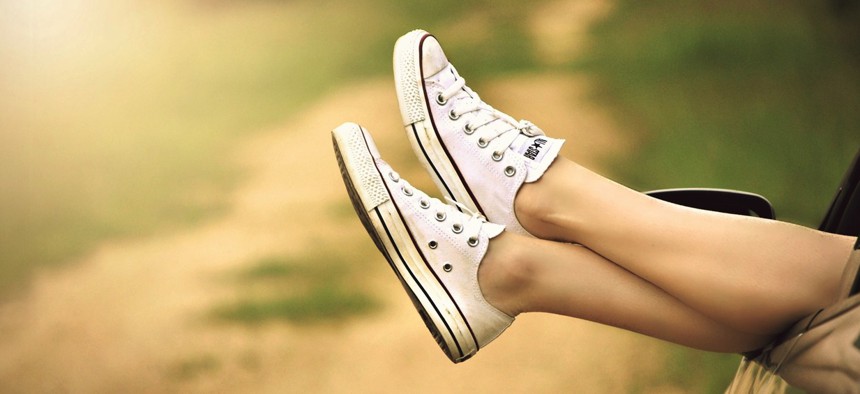
Relax a little. Pexels.com
To Make the Most of a Three-day Weekend, Be a Little Lazy Before and After
A short vacation can be just as good for your health as a long one.
Three-day weekends are tricky—72 hours isn’t enough time to properly indulge in wanderlust, but studies have shown a short vacation can be just as good (pdf) for decompressing as a longer one, even if short means fewer than five days.
By following these guidelines, you can make the most of your freedom, however brief:
Don’t let that last workweek get you down. The final few days before time off are undoubtedly stressful, but a higher pre-vacation workload can lead to a dip in well-being (pdf), according to one Dutch study. (Likewise last-minute housework.) Kick your long weekend off right by wrapping up loose ends, and hitting the gym or taking a walk on the way home. “This will help you to mentally disengage from your work, get rid of stress hormones and prevent complaints during your first days off work,” says psychologist Jessica de Bloom.
Set an away message—no, really. Smartphones foster all kinds of productivity, but the pressure to get ahead makes it easy to ignore overstimulation. “People may worry about job security, want to increase their salary, or advance in their career, so they feel that they have to be more dedicated to their work,” says YoungAh Park, an assistant psychology professor at Kansas State University. “They show that by being available outside of normal work hours.”
Especially during a vacation, your brain needs breathing room. “Downtime lets the brain go over experiences it’s had, solidify them and turn them into permanent long-term memories,” says Loren Frank, an assistant professor of physiology at the university of California, San Francisco. In fact, not giving your brain time to recover can put you in an “exhaustion state,” which makes it harder to return to work.
Try something new. Mastering a new skill can help counteract theSunday blahs (really!) that arrive at the end of a chill weekend. Research has shown that “mastery experiences” (pdf) lead to increases in joviality, self-assurance, and serenity. So think of a three-day weekend as an open casting call for your new favorite hobby, whether that’s trying your luck at rock-climbing or homemade pasta.
Go back to nature. Don’t just go outside—go somewhere with trees. A study from the University of Michigan (pdf) found that people who went for a 50- to 55-minute walk through a campus park performed better on a memory test than those who walked through downtown Ann Arbor. A similar study from Stanford University (pdf) found—perhaps unnecessarily—that people who went on a 90-minute walk in a green space had lower levels of rumination (i.e. brooding) than those who took a 90-minute walk on a busy highway in Palo Alto.
End on a high note. No matter how long or exotic the vacation, research shows you’ll be back to pre-vacation stress levels within a week or two. So follow the “peak-end rule” set forth by Nobel laureate Daniel Kahneman, which suggests we remember experiences based on the most intense part and the end of them. Instead of using that last night off to ease back into the grind, treat yourself to a nice dinner and a good read before a sensible bedtime—or go out, and suffer the Monday hangover. It may be worth it.






